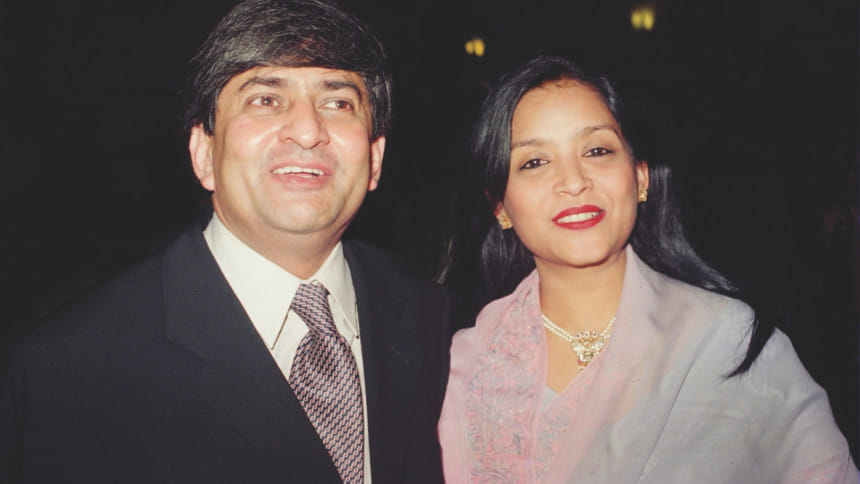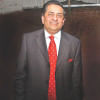Never dreamt of writing such a column on Fahim

Fahim's was always a larger than life presence. Never a moment without his infectious smile, always the first to come up with a joke suitable for the occasion, never shying away from pulling someone's leg, almost always taking us by surprise with his ready wit and always able to turn a rather serious encounter into a more pleasant occasion with his superb social skills.
But just as easily, he could turn himself into a stern taskmaster. Never to watch the clock while working, he would be quite weary of people who did.
I do not recall when we met first but it was while I was visiting Tokyo in 1994 and he was our press counsellor there, when we seriously talked about his joining this paper when his term would expire in Japan.
He joined us in 1996 as Towfiq Aziz Khan's deputy, soon to become the managing editor himself, as I wanted Fahim to overhaul our management system especially the financial aspects. This he did creditably and soon we developed a special rapport that lasted for all the 14 years that we worked together.
The Daily Star Board's fundamental message that a paper's journalistic independence fundamentally depended on its "bottom line" was well internalised by Fahim, a spirit that he tried to inculcate in all our business management staff.
Soon we made a very productive team. He accepted my leadership very naturally I learnt to respect his judgment almost intuitively and together we helped to turn The Daily Star into the most successful English language daily in the country.
The first landmark was to achieve that magic threshold known in the business world as 'break even'. A few years later, an even higher threshold was crossed when we first made profit. As we wiped out the accumulated losses of the past years, our confidence grew and Fahim's astute management of the paper became more pronounced.
He loved being at the Star. Seldom, if ever, I saw him coming late to the office or going early. Obviously he did not stay as late as the journalists did but definitely far later than he needed to. Every evening before going home he would spend a few minutes briefing me on the day's financial dealings and then he would go to the newsroom to spend time with our young team who all loved him. Budget nights were Fahim's speciality, when he would treat the staff with katchchi biriyani and stay till at least the first edition would be printed.
Though he mostly adored a managerial position, in his heart he was a journalist. He could brief a reporter far better than many news editors I have known and was able to find flaws in a reporter's story even after being cleared by senior subs. He had an incredible eye for mistakes. Often after I had cleared a copy he would see something, though it was not his job, and show me how an error had escaped my eyes. And all this he did with incredible speed. He was a fast reader if there was one, and could spot a typo miles away. This was one of his qualities that I envied him for.
If Fahim was in the office, we would all know, especially me, not only because his office was next to mine but also because something would always be happening around him. Far more regularly than me, Fahim would come to office having already read most of the important papers, including of course his own. So he would know which advertisement we had gotten and which ones we missed, and get to work immediately on getting them for the next day's issue. This was crucial in the early days and it was Fahim's perseverance and persuasiveness that combined to get us increasing business when most advertisers preferred the higher circulation Bangladesh Observer. As the paper gained readership and recognition, Fahim was able to convert them into expanding our business, which he did with his usual charm.
His eyes for news was exceptional. He also knew, often more than me, the news that we missed that others had. This, obviously, made our newsroom leaders terrified of him, a fear he would quickly assuage with his friendliness. In our morning meetings, Fahim's participation was always crucial, as he knew precisely where we did well and where we did not. It would be our news team's 'dream day' when Fahim would not have much to say, which would signify that they had done well.
When Fahim first joined us, our news deadlines, printing deadlines and distribution deadlines, all being linked, were in a mess. "Mail fail", meaning we missed the buses for the outlying districts, was a regular feature. He worked closely with our news and circulation team to fix them.
The biggest challenge with Fahim was to introduce new people to him, for he knew most of them. His circle of friends and acquaintances was unbelievably wide. And the very few he happened not to know he knew of them and could narrate significant facts about them off the cuff. Fahim literally thrived among friends and he was seldom without them, and they in turn loved him, evidence of which was aplenty, as hundreds wept like children at the news of his passing away.
If a new restaurant opened in any part of the city Fahim would not only know but would have already eaten there by the time others came to know about it. I often suggested that he should write a "Where to eat in Dhaka" column in the paper which, if he did, would have been one of our most popular. It was his love for food coupled with his aversion for any form of exercise that appears to have gotten the better of his judgement at the end.
Fahim had a wonderful family. His wife, Limi as we lovingly call her, is someone who endears everyone who comes into her presence even for a brief moment, a quality that Fahim was extremely proud of. He adored his children and would never tire of telling us when they excelled either in studies or in work.
I was in Beijing when an early morning caller informed me about his being no more. I repeatedly questioned him about the news' authenticity, as I couldn't accept the fact that the one who personified the spirit of "joie de vivre" could have abandoned life so early and so suddenly.
He was one of the early builders of The Daily Star for which I, and all my fellow colleagues, will forever remember him with gratitude and pride. His was a life dedicated to news media and all of us in this profession will sorely miss his guiding leadership. May the Almighty grant him Heavenly Peace.
The writer is Editor and Publisher, The Daily Star.

 For all latest news, follow The Daily Star's Google News channel.
For all latest news, follow The Daily Star's Google News channel. 








Comments